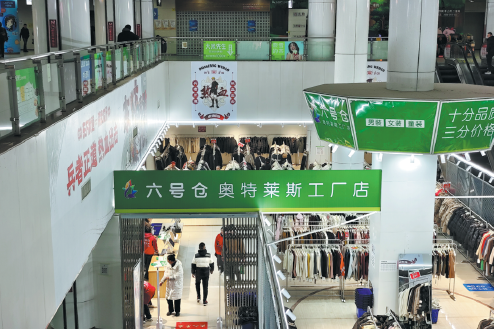New tariffs proposed by Beijing have California wine exporters worried

Vern Vierra, the owner of St Jorge Winery in Lodi, California, has been exporting wine to China for eight years. Now he faces a new challenge-China is planning to impose a 15 percent tariff on US wine and other products in response to the proposed US tariff increases on Chinese imports.
"We are not going to go with that," said Vierra. "The agricultural community in the United States is going to pressure the politicians in Washington to stop the tariffs on aluminum and steel."
US President Donald Trump announced on March 8 the imposition of import tariffs on China's steel and aluminum. He made a second announcement of tariff increases on a wide range of Chinese imports valued at $60 billion on Thursday.
China announced on Friday compensatory tariffs on 128 US products, including wine, fruit, steel and pork targeting approximately $3 billion worth of imports from the US.
"Additional taxes are never good when it comes to exporting goods from one country to the other," said Farrah Felten, vice-president of marketing and sales at Klinker Brick Winery in Lodi.
"The producers of the products will see smaller orders than they are used to, or no orders at all, and the end consumer of the products will end up seeing price increases in restaurants and on store shelves," she said.
Her winery will ship the first order of 1,000 cases of its old vine zinfandel to China on Thursday.
"But, right now it's too early to really tell what the true ramifications of the added tariffs are. We will have to see what happens in the next couple of months," she said.
St Jorge Winery has plans to further explore the Chinese market this year. It has partnered with the Shenzhen Wine Industry Association to provide St Jorge wines to restaurants in the city.
China, which purchases only a tiny market share of US wine, is the fastest growing market. US wine exports, 97 percent from California, have been strong in China, including the Chinese mainland, Hong Kong and Taiwan, with 10 percent growth to over $210 million in 2017, according to the California Wine Institute, a research and advocacy group.
China is expected to surpass the UK as the second-largest wine consuming market by 2020, behind the US.
But California wine exports are expected to suffer if an agreement cannot be reached between Beijing and Washington.
"President Trump's decision to address United States trade issues by the use of threats and increased tariffs risks undoing decades of work and investment to grow California wine exports," California Association of Winegrape Growers President John Aguirre said in a statement on Friday.
"The current path of tariffs and trade wars is sure to result in tremendous harm to California agriculture and future wine exports," said Aguirre.
There's a period of 15 days for the US government to determine which imported items are subject to the tariffs and there's another 30-day public comment period for US companies, consumer groups, businesses and organizations to tell the US government that this is a bad idea, said Brian Peck, chairman of Los Angeles Regional Export Council.
Vierra said he was confident the proposed US tariffs will not be approved. "The exports of agricultural products to China are greater than the imports of steel and aluminum. So I don't see that it will be approved," he said.
- Makers of lucrative TCM cast net wider for future success
- China committed to resolving trade frictions through dialogue, negotiations: FM
- Business and opinion leaders weigh in on trade tensions at China Forum
- Expert: Solar energy partnership would be win-win
- WTO members concerned over US safeguard measures against imported solar cells



































